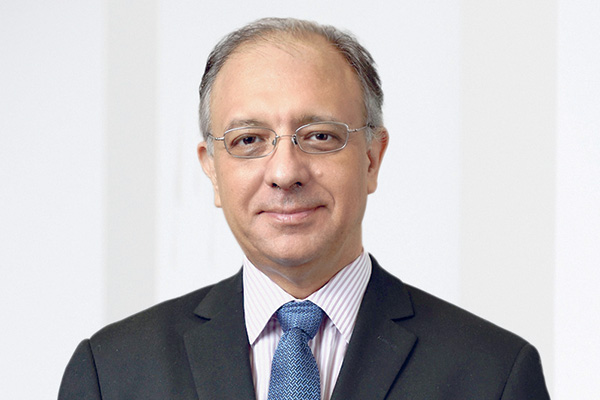
Mariscal: Middle East surpasses the global average
in development indicators.
Mideast growth seen beyond oil and gas sector
DUBAI, August 31, 2016
The Middle East is well placed to diversify its economy away from oil and gas, with growth potential in numerous sectors such as solar power, tourism, finance, according to a new report by UBS, the world's largest global wealth manager.
Energy price drops have accelerated the Middle East's need to invest in areas beyond hydrocarbon production, said Jürg Zeltner, president of UBS Wealth Management.
Potential beneficiaries include solar power, tourism, and finance, as well as economies like Saudi Arabia and Iran that are opening up to greater foreign investment. In some economies, greater diversification could lead to an eventual relaxation of exchange rate pegs with the US dollar, boosting their long-term flexibility.
"The Middle East's position in the world continues to evolve. The necessary reforms will not be easy, and the years ahead not without difficulties. Yet the professionalism, humility, and realism of the clients and investors I have met in the region give me tremendous confidence in its ability to shape its future,” said Zeltner.
Jorge Mariscal, Emerging Markets chief investment officer at UBS Wealth Management, said: "The Middle East surpasses the global average in development indicators such as education, telecoms penetration, and income equality. The region is ripe for policies that will support employment and put it on a more sustainable economic footing."
Solar power: Without the prop of elevated oil and gas prices, UBS sees local energy subsidies as increasingly untenable amid growing domestic demand. With over 300 days of sunshine per year, the Middle East should use solar to help fill the gap. The Middle Eastern Solar Industry Association estimates that large-scale installations will stay competitive even with oil prices at USD30/bbl and gas prices at USD5/MMBtu.
Tourism: While Dubai has been at the forefront for many years, other countries in the region are following suit. Qatar is hosting the FIFA World Cup in 2022 and is planning to open Louvre and Guggenheim Museums. Saudi Arabia is targeting improvements in tourism and leisure in its Vision 2030 plan. Challenges include cultural differences between residents and visitors, as well as perceived security threats.
Finance: The oil and gas downturn has left the Middle East with growing financing needs, which is likely to boost interest from international investors. Bond issuance is rising, while the trend towards privatization and greater foreign ownership of companies will help open up Middle Eastern equity markets. – TradeArabia News Service







